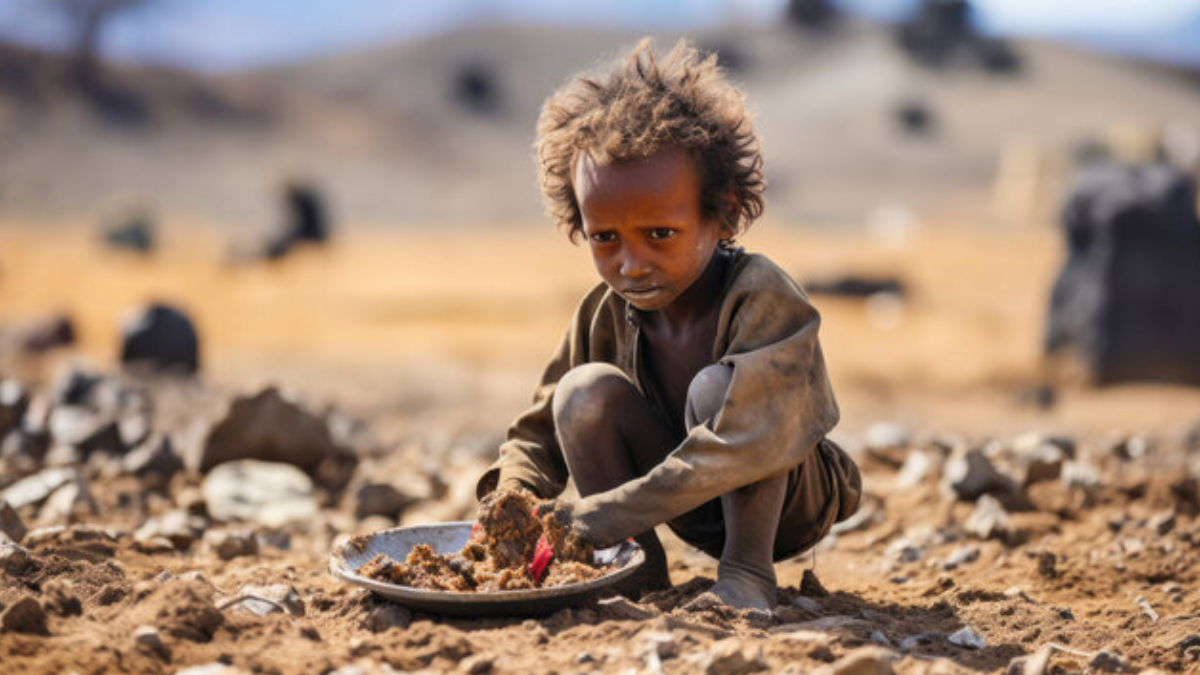Africas: When you hear the word Africa, images of poor, hungry children with skeletal bodies and bloated stomachs often come to mind. For a long time, the media has depicted Africa in this painful manner. This article will explore why hunger is such a pervasive problem on the African continent, the reasons behind this crisis, the number of African countries affected, and how many people are impacted by it. The most pressing question is, what does the future hold? Will this famine persist, or is there a solution?
Starting from the beginning, Africa has a long history of famine. During the Nigerian Civil War in 1967, more than 2 million civilians died, and the war led to severe famine. Between 1970 and 1980, over 1 million people died from hunger, affecting those living in arid regions. Ethiopia experienced famine between 1983 and 1985, resulting in over 1 million deaths due to civil war and starvation. Somalia faced famine from 1991 to 1992, where over 330,000 people died due to civil war and lack of agricultural produce. The Eritrean-Ethiopian border war also had devastating effects, causing significant economic losses and leaving over 10 million people facing starvation for three consecutive years.
In addition to wars, natural disasters have also played a role. Between 2005 and 2006, drought and tidal waves exacerbated the situation, especially in East Africa, where the Congo war also contributed to famine. Countries like Ethiopia, Kenya, Uganda, and others suffered, with over 285,000 people dying. The El Niño drought between 2015 and 2016 further worsened the situation, impacting food security for over 50 million people. The COVID-19 pandemic from 2020 onwards also severely affected Africa, exacerbating food insecurity due to diseases, lack of awareness about food, locust attacks, and malnutrition.
From 2021 to 2022, the food crisis in Africa intensified. Major causes include currency instability, food shortages, extreme weather conditions, the war in Ukraine, and border tensions. According to the World Food Programme’s 2022 report, over 43 million people are affected by hunger in 12 countries in Central and South Africa, while more than 30 million people are suffering in 16 countries in West and South Africa. The report highlights five African countries facing the most severe hunger. The Food and Agriculture Organization of the United Nations also projected that by 2030, the number of people affected by hunger in Africa will exceed 300 million.

The three major causes of hunger in Africa are conflict, economic instability, and climate change-related disasters. Conflicts disrupt livelihoods, economic conditions weaken, and natural disasters ruin agricultural production. Even small-scale farming is devastated, impacting poor families who rely on farming for their survival.
Many international and domestic companies, along with NGOs, provide food and water to the hungry. However, the population is so large, and the supply is so limited that many people continue to lose their lives due to hunger.




